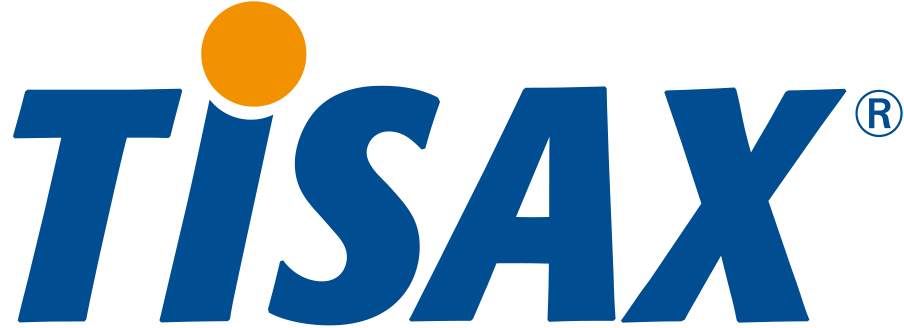The following are the top 12 smart shop floor solutions for different industries and verticals that will likely mature soon.
1. Real-Time Monitoring
Shop floors are complex ecosystems that comprise numerous micro-processes. Evaluating the performance of these processes is integral to maintaining productivity, making profits, and staying safe and compliant. AI and edge computing innovations, which involve processing data close to the data source, allow businesses to generate, gather, and leverage real-time shop floor data to monitor an array of critical metrics to evaluate performance, track KPIs, and ensure effective stewardship of shop floors.
2. Production Scheduling Software
On shop floors, demands are constant, and resources are finite. Therefore, the efficiency of production wholly depends on the quality of scheduling. While manual scheduling has worked for decades, modern demands call for more robust and dynamic solutions. Production scheduling software transforms shop floors by automatically and meticulously programming manufacturing workloads and tasks, assigning available resources, and staying within capacity limits.
3. Shop Floor Data Collection
We know that data is every enterprise’s most valuable resource. However, enterprises don’t always honor this modern adage with optimal practices. Amongst the top smart shop floor solutions are data collection mechanisms. Manual data collection processes are often rife with human error. Smart shop floor data collection involves automated mechanisms to collect, categorize, standardize, process, output, and visualize data. As mentioned earlier, advanced IIoT machines and edge computing ensure that every data collection lifecycle is accurate and accelerated.
4. Maintenance Management
Smart shop floor solutions can go a long way in helping maintenance managers and technical personnel carry forth their duties. On shop floors, every second counts because even brief periods of downtime can cause financial wreckage. The key to optimizing maintenance management is introducing real-time monitoring to assess the health and efficiency of machines and predictive analytics to foresee when equipment may need maintenance, decommissioning, or replacement.
5. Work-In-Progress (WIP) Tracking
There’s still a fair amount of manual paperwork and human oversight to track works-in-progress on shop floors. This can be time-consuming, resource-intensive, and prone to human mistakes. Automated mechanisms and systems for WIP tracking will meticulously track in-progress projects so that key remote and on-premises stakeholders can stay updated. Examples of WIP tracking technologies include real-time dashboards with visualized information and automated tagging and barcode scanning to trace components. WIP tracking systems can also help businesses understand how effective and efficient their technicians are.
6. Quality Management
Quality management and control isn’t merely a sieve in the latter stages of a production workflow to eliminate mistakes. Ideally, businesses should embed quality control into every stage of their manufacturing lifecycles. Some ways to automate and modernize quality management include implementing quality control policies, automating the entire data management ecosystem and lifecycle, ensuring that IIoT equipment captures performance data, and introducing AI and ML-powered tools and applications to view, analyze, and effectively use the information gathered from the smart shop floor.
7. Inventory Management and Control
Inventory management and control are vital in maintaining a healthy and productive shop floor. The last thing an enterprise wants is an understock or overstock situation because it could result in a loss of productivity, smaller profit margins, and reputational scarring. rinf.tech’s innovation for a global electronics manufacturer – an inventory management tracker for hospitals – is a perfect example of the transformative powers of smart consignment inventory management (SCIM) platforms. rinf.tech’s SCIM platform greatly enhanced the tracking, transporting, and monitoring of inventory and increased the customer’s time-to-market, all while staying well under the assigned budget and time limits.
8. Employee Training and Skill Management
As the technology on shop floors evolves, the traditional roles of employees also change. Therefore, key personnel may require new skills and training to operate smart machinery, follow best practices, and increase productivity. New technologies on smart shop floors can make employee training a more effective and enjoyable process. Examples include virtual reality and augmented reality-based training sessions, the use of digital twins, and digital gamification.
9. Ergonomic Solutions
According to the Bureau of Labor Statistics under the US Department of Labor, 2022 witnessed more than 2.8 million injuries in the workplace. Amongst the primary causes were overworking, contact with machinery, falling or tripping, and exposure to hazardous materials. These statistics highlight the importance of ergonomic solutions, not just to follow the safety standards issued by governing bodies but to ensure that employees get the safest, most convenient, and streamlined work environments possible. Ergonomics solutions include robust exo-suits, computer vision, workstation (re)design, wearable IoT devices, and a variety of extended reality (XR) tools.
10. Environmental and Safety Control
Environmental and safety control is a similar use case to ergonomic solutions and is equally essential on shop floors. Businesses are increasingly including sustainability and eco-friendliness as key areas of evaluation. According to Gartner, 1 out of every 4 CIOs’ evaluation and remuneration will be based on meeting sustainable technology goals. Various smart shop floor solutions can be used to harden a business’s environmental and safety control posture. These include virtualizing the shop floor by creating a digital twin, integrating real-time monitoring and reporting tools, and employing AI-based big data analytics to assess short-, mid-, and long-term environmental and safety concerns, phenomena, and trends.
11. CCTV Video Surveillance
CCTV has existed since the 1940s, but modern advancements are ready to take this familiar technology to the next level. Recently, rinf.tech created a CCTV analytics solution for a leading consumer electronics manufacturer and retailer. Key capabilities of this innovation included facial recognition, queue detection, people counting, activity visualization, and data analysis. This innovation involved marrying stream cameras with video analytics servers. It resulted in a 90% increase in customer insights, amongst other transformative improvements.
12. Robotics and Automation
Robotics and automation can bring countless advantages to shop floors in diverse industries. The benefits of robotics include streamlined workflows, faster production, enhanced safety, long-term cost-savings, and eventually, higher profit margins and a wider competitive advantage gap. Robotics and automation can also take over the more repetitive, painstaking tasks from employees and free them up to focus on more creative and high-level functions. While the discourse around robotics often touches on replacing human workers, the most likely outcome is a healthy co-existence of the two.






